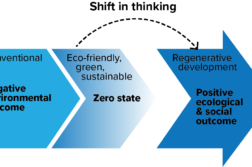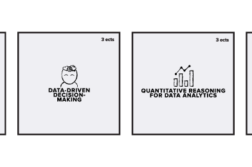When we share our thoughts about different mindsets, knowledge, or experiences; How often are they based on actual understanding of the topic or based on assumptions without certainty towards facts.
Methods of gathering information
During our lifetime, we understand, deny, accept, assume, and decide on different categories and actions. These are followed by either progression with the topic or consequences depending on the situation. After of which, we make needed decisions on how to move forward or maybe dodge these outcomes.
 Though when we make decisions based on the things we have learned or already understand. How often are they based on true facts or based on assumptions. If they are based on assumptions, then have we decided ourselves to ignore the uncertain and move forward with just what we know through assuming how things are?
Though when we make decisions based on the things we have learned or already understand. How often are they based on true facts or based on assumptions. If they are based on assumptions, then have we decided ourselves to ignore the uncertain and move forward with just what we know through assuming how things are?
- Understanding: “Knowledge about a subject, situation, etc. or about how something works”
- Assuming: To accept something to be true without question or proof”
Understanding vs. assumption
When we look at these two words and their meanings, then briefly one could understand, how they could be mixed up. To understand a subject, one is required to have certain amount of information in hand. Be it by their own research or by listening and seeing what is around them. Though both have the same intention, which is to reach a certain conclusion and then provide advancement with the subject. One key difference being that understanding requires an individual to seek understanding, when assuming scrapes the surface. Meaning that to understand something, an individual is required to seek a wider perspective, and put time and effort towards reaching a conclusion. When assumption allows an individual to create their own conclusion with what information they have or see.
Good example of this was written on an article concerning understanding vs. assumption. A company boss may assume things about their subordinates or vice versa without knowing all the facts. Bosses can assume that their subordinate has other priorities other than their job when they arrive late to work. Similarly, employees can make assumptions about their boss time management. When they fail to realize, how difficult it might be for their boss to manage the entire company, make decisions, deal with crisis situations, etc.
- Fact: “Something that is known to have happened or to exist, especially something for which proof exists, or about which there is information”
Risk of assumption
 The risk of assumption is like an individual rushing their work speed with a heavy-duty machine or an old computer. Basically, it is a consequence waiting to happen and not an accident waiting to happen. Following articles also explains the real risk of assumption. Overall, what this means is that the individual has decided on their own volition to ignore the possible risk factor or they are willing to take the risk and still move forward with it. When and if something does happen, then it is either marked as an “accident” or the individual uses more resources to fix it.
The risk of assumption is like an individual rushing their work speed with a heavy-duty machine or an old computer. Basically, it is a consequence waiting to happen and not an accident waiting to happen. Following articles also explains the real risk of assumption. Overall, what this means is that the individual has decided on their own volition to ignore the possible risk factor or they are willing to take the risk and still move forward with it. When and if something does happen, then it is either marked as an “accident” or the individual uses more resources to fix it.
Example, an individual needs a certain type of print from a special printer but has not used one before. This person does not know, how the printer works and knows that all machines in the workshop require induction training. Though this individual has watched many guides from the internet; On how to print with the machine and because they only need just a small print, they decide to print anyways. What is not common knowledge and what is not mentioned, is that the workshop specific printer requires a certain calibration before working. Because of this, the print does not work out and the printer goes to maintenance mode. In conclusion, if this person would have asked for induction, then they could have avoided earlier mentioned scenario.
Mitigating risk
Although understanding requires time and effort, it is not measured to a certain amount. Meaning that depending on the subject, the amount of time an individual is required to understand can be for example, 15 minutes to five days. If the reason behind choosing assumption is time management or being bothered. Then the individual needs to take careful consideration of the possible consequences and how they affect the surrounding.



